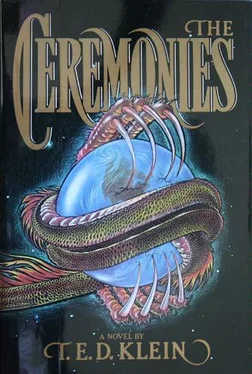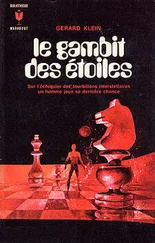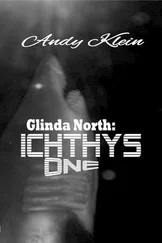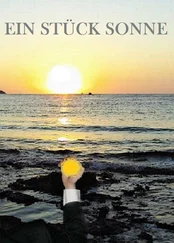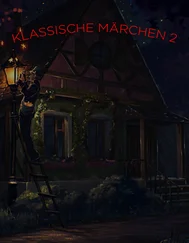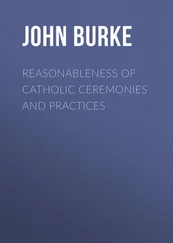T Klein - Ceremonies
Здесь есть возможность читать онлайн «T Klein - Ceremonies» весь текст электронной книги совершенно бесплатно (целиком полную версию без сокращений). В некоторых случаях можно слушать аудио, скачать через торрент в формате fb2 и присутствует краткое содержание. Жанр: Ужасы и Мистика, на английском языке. Описание произведения, (предисловие) а так же отзывы посетителей доступны на портале библиотеки ЛибКат.
- Название:Ceremonies
- Автор:
- Жанр:
- Год:неизвестен
- ISBN:нет данных
- Рейтинг книги:3 / 5. Голосов: 1
-
Избранное:Добавить в избранное
- Отзывы:
-
Ваша оценка:
- 60
- 1
- 2
- 3
- 4
- 5
Ceremonies: краткое содержание, описание и аннотация
Предлагаем к чтению аннотацию, описание, краткое содержание или предисловие (зависит от того, что написал сам автор книги «Ceremonies»). Если вы не нашли необходимую информацию о книге — напишите в комментариях, мы постараемся отыскать её.
Ceremonies — читать онлайн бесплатно полную книгу (весь текст) целиком
Ниже представлен текст книги, разбитый по страницам. Система сохранения места последней прочитанной страницы, позволяет с удобством читать онлайн бесплатно книгу «Ceremonies», без необходимости каждый раз заново искать на чём Вы остановились. Поставьте закладку, и сможете в любой момент перейти на страницу, на которой закончили чтение.
Интервал:
Закладка:
These places were real. A few, it was said, had even had stone walls around them once – places such as Harmony and Mt Jordan, and Zion and Zarephath, with round-the-clock Bible talk on the radio. Places such as Gilead, his destination.
Kenilworth, Mountainside, Scotch Plains, Dunellen… they themselves seemed far from Jersey: names out of Waverley novels, promising visits of castles, highland waterfalls, and meadows dotted with flocks of grazing sheep. But the signboards lied, the books had lied, the Times had lied; the land here was one vast and charmless suburb, and as the bus passed through it, speeding west across the state, Freirs saw before him only the flat grey monotony of highway, broken from time to time by gas stations, roadhouses, and shopping malls that stretched away like deserts.
The bus was warm, and the ride was beginning to give him a headache. He could feel the backs of his thighs sweating through his chinos. Easing himself farther into the seat, he pushed up his glasses and rubbed his eyes. The scenery disappointed him, yet it was still an improvement over what they'd just come through. Back there, on the fringes of the city, every work of man seemed to have been given over to the automobile, in an endless line of showrooms and repair shops for mufflers, fenders, carburetors, ignitions, tires, brakes. Now at last he could make out hills in the distance and extended zones of green, though here and there the nearness of some larger town or development meant a length of highway lined by construction, billboards touting banks or amusement parks, and drive-in theaters, themselves immense blank billboards, their signs proclaiming horror movies, 'family pictures,' soft-core porn. A speedway announced that next Wednesday was ladies' night. Food stands offered pizzaburgers, chicken in the basket, fish 'n' chips. Too bad the bus wasn't stopping; he'd wolfed down an omelet two hours ago, standing in the kitchen of his apartment, but he was already hungry again.
With a sigh he turned back to his reading. He had brought a manila envelope bulging with photocopied articles from Sight and Sound and Cahiers du Cinema, enough for him to fake his way through still another week's installment of the film course he was teaching at the New School. Luckily that bunch wasn't hard to stay ahead of: art students, mostly, on transfer from Parsons, satisfying their English requirement by sitting through a dozen or so old movies.
The bus was nearly empty, and he had a pair of seats to himself. No need to make halting conversation with some ignoramus who hadn't bought along a magazine to read. Around him all the other riders looked like Jersey types, blank-faced men and women in dowdy clothes, off on mysterious Sunday-afternoon errands. Farther forward sat two teenage boys cradling knapsacks and caps, a fat woman and her equally fat daughter clutching shopping bags, an old man chattering nonstop to the driver, and one lone young woman whose face betrayed nothing, probably on her way to meet a lover, he decided, or returning from some wild night in New York. Toward the rear a large black woman gazed impassively ahead, already looking out of place. White folks' country here. In the row in front of him a pale red-haired youth with an armed forces duffel bag was fiddling with his radio: not a suitcase-sized monstrosity like the black kids carried or the tinny little transistor Freirs himself owned, but a solid grey plastic thing, souvenir of some PX. A song by Devo had just ended in a burst of static, and a voice announced the time: twelve fifty-seven in Z-100 land. They were passing another industrial park now, its wide black lots deserted for the weekend: an electronics firm, a cannery, a forbidding-looking plant labeled Chemtex. To the west the sky was nearly cloudless, flooding the bus with sunlight. Hot for May; perhaps a promise of worse to come.
The Poroths' ad had mentioned electricity, but would that include air conditioning? Unlikely. But he supposed it would be good to be a little warm. Sweat the pounds away.
He felt the bus slow slightly and saw a sign for Somerville approaching in the distance. He remembered the map he'd studied. They were halfway across the state.
Now, gradually, there was a change in the land. At first it was only evident in the stores along the road: a farm supply house with burlap sacks of feed and grain piled against the porch; a tractor showroom; a sporting goods outlet with advertising placards for guns and ammunition in the window. Then, here and there, an occasional well-tended farm set far back from the highway, the distant farmhouse seeming to turn slowly as the bus went past, the trees or fenceposts along the roadside flashing by in a blur. The land was greener now, the acres of asphalt and angry-looking rust-red earth receding into the east. He felt something in him quicken. On the radio one row ahead the electrified pastorale of Jethro Tull was fading beneath a shrill, insectlike buzz, and the youth twisted the dial to something else. 'Then Jeremiah went forth out of Jerusalem,' the radio said, 'to go into the land of Benjamin, to separate himself thence in the midst of the people.'
They were moving deeper into the country.
He had never spent time in the country before. Where he'd grown up, in Astoria, northern Queens, there'd been playgrounds, empty lots, little green patches of lawn, but nothing that hinted of real nature, nothing for a boy to explore. It was a neighborhood where Cub Scouts had learned to read subway maps, where the closest things to wildlife were pigeons and grey squirrels.
The only open land, besides La Guardia Airport to the north, had been Flushing Meadows Park and a cluster of enormous treeless cemeteries where various Freirs, Freireicher, and Bodenheim relatives lay buried. The park had been the site of two World's Fairs. It was mostly grass now, but a few of the pavilions remained, and Shea Stadium occupied its northern half. As a boy Freirs had spent hours sitting in a favorite tree beside one of the artificial ponds, watching planes come in and out of La Guardia. They'd come in all night as well, one every few minutes until early morning. On summer nights, standing on the roof of his apartment building, he could look to the right and see the Bronx-Whitestone Bridge glowing in the distance, and the Triborough to the left, with the lights of Manhattan behind it. A central Con Ed power plant had stood just a mile and a half away, a monstrous thing with five huge smokestacks, like some great beached ocean liner, and he'd always believed that it made the electricity for all those lights. The planes had been beautiful, winking in the darkness, and the noise hadn't bothered him much; he'd grown up with it. Manhattan, when he'd moved there after college, had seemed almost quiet by contrast.
Paradoxically, like so many other children in New York, he'd grown up with the idea that what he loved best was the country. Phrases like 'the dark woods,' 'the forest primeval,' and 'the wide open spaces' had made him shiver with longing. He'd felt an inexplicable nostalgia at the pictures of farms and mountains in his schoolbooks; even a poster of bland brown Smokey the Bear was capable of moving him. At age six he had wandered through the parking lot behind his house stamping out cigarette butts, convinced he was helping prevent forest fires. Later, in junior high school, he'd been certain he wanted to be a forest ranger when he grew up; so had nearly half the class. He had imagined himself sitting all day in some solitary tower, reading stacks of books, gazing through binoculars from time to time, then slipping down the ladder, beardless young Jewish St Francis, to check up on the bears and feed the deer.
Now, for all he knew, he was heading toward that very world, or at least that world's domesticated neighbor, and he was beginning to feel a little less certain of its rewards. The bus had left the highway back hi Somerville and had already made half a dozen stops in small towns and roadside depots – Clover Hill, Montgomery, Raritan Falls: bastions of silence and boredom where, on a Sunday afternoon in May, not a soul was to be seen except the occasional tall scowling man or hard-eyed woman in a pickup truck or station wagon, waiting for a passenger to disembark. These were towns without drugstores or banks, towns where the nights were for sleeping and homes went dark early. Kids here, he supposed, would build backyard tree houses and fortresses in the woods; they would join 4-H clubs, save up for their first rifles, and spend their teenage evenings driving up and down back roads, following their headlights while the roadbed bumped and dipped beneath their wheels.
Читать дальшеИнтервал:
Закладка:
Похожие книги на «Ceremonies»
Представляем Вашему вниманию похожие книги на «Ceremonies» списком для выбора. Мы отобрали схожую по названию и смыслу литературу в надежде предоставить читателям больше вариантов отыскать новые, интересные, ещё непрочитанные произведения.
Обсуждение, отзывы о книге «Ceremonies» и просто собственные мнения читателей. Оставьте ваши комментарии, напишите, что Вы думаете о произведении, его смысле или главных героях. Укажите что конкретно понравилось, а что нет, и почему Вы так считаете.
